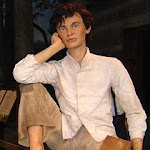
Hip, hip, hooray! Hip, hip, hooray!
What is it? It’s the sound of Lincoln scholars around the world celebrating the largest educational grant awarded this year by the National Endowment for the Humanities (NEH) to an educational institution. And, it’s going to an entity on the Illinois prairie where the legacy of Abraham Lincoln is alive and well.
Digging into Lincoln
Since the founding of the Lincoln Studies Center at Knox College in 1998, the center’s co-directors Rodney O. Davis and Douglas L. Wilson, have been working hard to make Abraham Lincoln primary source material more accessible to the masses. Yet, their collaborative work on Lincoln goes back at least a decade earlier, and their footsteps down the hallowed halls of Old Main tread back nearly four decades to the early 1960s.
Old Main at Knox College is remembered, even revered, as the place where, on Oct. 7, 1858, thousands of people gathered to hear one of the great debates between Abraham Lincoln and Stephen A. Douglas.
Davis and Wilson, both Distinguished Service Professors Emeritus at Knox, first shared their love of history and literature with Knox students in the classrom. Yet, when they retired from teaching, their work didn’t stop. Instead, they dug in even deeper.
Their first major project under the auspices of the Lincoln Studies Center was the Abraham Lincoln Papers at the Library of Congress, which includes more than 20,000 documents from Lincoln’s presidential years.
Even before that huge undertaking, the pair had sifted through the work of Lincoln’s law partner, Billy Herndon, to publish previously hard to find and nearly impossible to read documents in one volume, Herndon's Informants: Letters, Interviews, and Statements about Abraham Lincoln. This 1997 University of Illinois Press publication is invaluable to Lincoln scholars.
Each of the two have done numerous other Lincoln- related works, many of which are award-winning. If you find a Lincoln scholar who tells you their work hasn’t been touched by the Lincoln Studies Center, I’d question the depth of their research.
“We the People” project
The Lincoln Studies grant is awarded through the NEH “We the People” program. “We the People” is designed to encourage and enhance the teaching, study, and understanding of American history, culture, and democratic principles.
The Lincoln Studies Center’s Board of Advisors is comprised of eight accomplished Lincoln scholars, who each serve four-year terms. If you study Lincoln at all, you’ll recognize many familiar names – people who’ve contributed much to the studies of our 16th president and continue to help keep the legacy alive - both on today's board and earlier ones as well.
The current board includes:
- Michael Burlingame
- William C. Harris
- James M. McPherson
- Edna Greene Medford
- Matthew Pinsker
- Gerald J. Prokopowicz
- John R. Sellers
- Ronald C. White, Jr.
- Gabor Boritt
- Collum Davis
- Jennifer Fleishner
- William E. Gienapp
- Allen C. Guelzo
- Harold Holzer
- Robert W. Johannsen
- William Lee Miller
- Lucas E. Morel
- Philip S. Paludan
- Mark E. Neely, Jr.
- Thomas F. Schwartz
- John Y. Simon
- Kenneth J. Winkle
If this is good news to you and if you’ve reaped the benefit of the Lincoln Studies Center’s work in doing your own research, you may want to say “thanks” with your own financial gift. Though $2.5 million is a huge number and it will take some large gifts to make it happen, every little bit helps – not only to match the grant, but to help Lincoln scholars for generations to come.
Even though my work on Lincoln is just beginning, I already see the value of the Lincoln Studies Center and the work they do there. I dropped my check in the mail yesterday. Won’t you join me in helping to meet the match?
The college plans a national fundraising effort, but if you’re like me and you want to say congratulations with your own gift now, here’s a link to the Knox Office of Advancement webpage, where you can find contact information. Just be sure you include a note to indicate you want your funds to go to the Lincoln Studies Center NEH match.
And, you can do two more things:
- Next time you see Rodney Davis or Doug Wilson on the Lincoln circuit, say “Congratulations – and thanks for all you do!”
- Drop a note to the NEH to thank them for their investment in this worthwhile cause and their bicentennial birthday gift to Lincoln.






